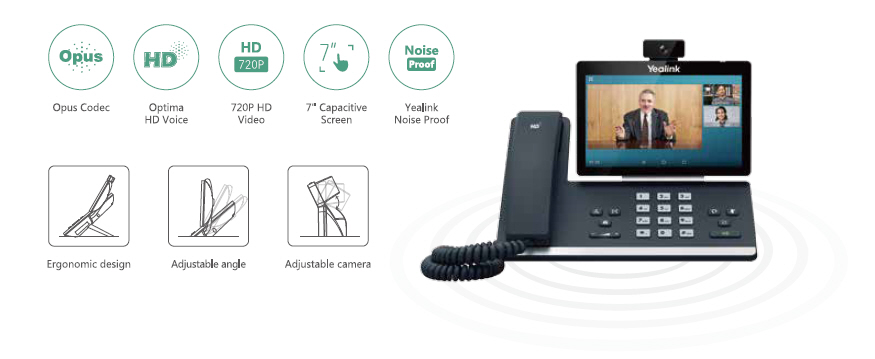Introduction: Why Choose a Cloud-Based VoIP System?
In today's fast-paced digital world, businesses are constantly seeking ways to optimize their communication strategies. One significant leap forward is the adoption of cloud-based Voice over Internet Protocol (VoIP) systems. These solutions not only enhance voice communication but also support video conferencing, messaging, and collaboration across teams.
So why should you consider upgrading to a VoIP phone system? The answer lies in integration. By merging various communication tools into one cohesive system, companies can streamline their processes, improve customer service, and ultimately drive growth. But what does it really mean to harness the power of integration with a cloud-based VoIP system? Let's delve deeper.
Understanding VoIP Phone Systems
What is VoIP?
VoIP stands for Voice over Internet Protocol. It enables users to make voice calls using the internet instead of traditional phone lines. This technology converts audio signals into digital data packets and transmits them via the internet.
How Do VoIP Phone Systems Work?
A VoIP phone system works by converting your voice into data packets that travel over the internet. This process involves several components:
VoIP Phones: These can be physical phones or softphones (software on computers or smartphones). Internet Connection: A stable internet connection is critical for quality voice transmission. VoIP Provider: Companies like RingCentral or Vonage provide the infrastructure needed for call routing. Network Equipment: Routers and switches ensure that data travels efficiently across networks.Benefits of Using a VoIP Phone System
- Cost Savings: Traditional phone systems involve hefty installation fees and long-distance charges. Scalability: Easily add new lines or features without extensive hardware changes. Flexibility: Users can access their phone systems from anywhere with an internet connection, making remote work easier.
The Importance of Integration in Business Communications
Why Integrate Communication Tools?
Integrating various communication tools simplifies workflows and enhances productivity. Imagine having your email, chat, and calls all in one place—this level of synergy allows teams to communicate more effectively.
Key Benefits of Integrated Communication Systems
Improved Collaboration: Teams can easily switch between different modes of communication, facilitating better collaboration. Enhanced Customer Experience: Integrated systems allow customer service reps to access complete customer histories during calls, leading to personalized experiences. Data Analytics: Businesses can gather insights from multiple sources and analyze them for better decision-making.Harnessing the Power of Integration with a Cloud-Based VoIP System
When we talk about harnessing the power of integration with a cloud-based VoIP system, we refer to maximizing efficiency by combining various applications into one unified platform. This integration fosters seamless communication among team members regardless of their location.
Unified Communication Features
A cloud-based VoIP system often comes with features such as:
- Video conferencing Instant messaging Call forwarding Automated attendants
These features create an all-in-one solution that empowers businesses to operate smoothly.

Real-time Collaboration Tools
With integrations like Slack or Microsoft Teams, employees can collaborate in real-time without switching between apps frequently.
Exploring Essential Components of a Cloud-Based VoIP System
1. Hardware Requirements
While many users opt for softphones, some organizations still prefer physical phones that connect directly to their network.
Recommended Hardware:
| Device http://my-expert-blog-2167.mozellosite.com Type | Description | Example Models | |---------------------|-----------------------------------|------------------| | IP Phones | Dedicated devices for VoIP | Cisco 8800 Series| | USB Headsets | For softphone users | Plantronics Blackwire| | Conference Phones | For group calls | Yealink CP960 |
2. Software Requirements
Cloud-based solutions typically run on any standard web browser but may also offer dedicated applications for desktops and mobiles.
Choosing the Right Cloud-Based VoIP Provider
Factors to Consider When Selecting a Provider
Choosing a reliable provider is crucial for ensuring quality service:
Service Reliability: Check uptime guarantees and reviews from other businesses. Customer Support: Look for providers that offer 24/7 support. Feature Set: Ensure they offer essential features tailored to your business needs.Integrating CRM Systems with Your VoIP Phone System
Why Integrate CRM with Your VoIP Phone?
Integrating Customer Relationship Management (CRM) software with your VoIP phone system enables better management of customer interactions.
Benefits Include:
- Accessing customer data before answering calls. Logging call details automatically within your CRM.
Some popular CRMs that integrate well include Salesforce and HubSpot.
Key Use Cases for Cloud-Based VoIP Systems in Different Industries
Healthcare Sector
In healthcare settings, patient confidentiality is paramount; hence secure communications via encrypted channels are crucial when discussing sensitive information through a VoIP phone system.
Educational Institutions
Schools utilize cloud-based communication tools for virtual learning sessions while allowing teachers to interact seamlessly with parents through various mediums – video calls, chats, etc.
FAQ Section Regarding Cloud-Based VoIP Systems
1. What are the main advantages of using a cloud-based VoIP phone system?
Cloud-based systems offer cost savings, scalability, flexibility, and enhanced collaboration features compared to traditional setups.
2. Can I use my existing phone numbers with a cloud-based VoIP provider?
Yes! Most providers allow number porting so you can keep your existing numbers while enjoying new features.
3. What type of internet connection do I need?
A stable broadband connection is required; however, higher bandwidth will improve call quality significantly during peak usage times.
4. Is training required after switching to a cloud-based VoIP system?
While user-friendly interfaces minimize training needs, onboarding sessions can help maximize productivity right away.
5. Are there any hidden fees I should be aware of?
It's vital to read contracts carefully; inquire about setup costs or additional charges for premium features!
6. Can I scale my services as my business grows?
Absolutely! One key advantage of cloud-based solutions is their ability to grow alongside your business without heavy investments in new infrastructure!

Conclusion: The Future Is Now
As we've explored throughout this article on “Harnessing the Power of Integration with a Cloud-Based VoIP System,” it's clear that transitioning from traditional telephony methods holds immense potential for modern businesses seeking growth opportunities in efficiency and connectivity!
By integrating various communication tools into one robust platform powered by advanced technologies like those found within reputable VoIP Phone Systems, organizations will not only save money but also foster teamwork across geographical boundaries—ultimately enhancing customer experiences too!
So why wait any longer? It's time you embraced this technological evolution—your future self will thank you!